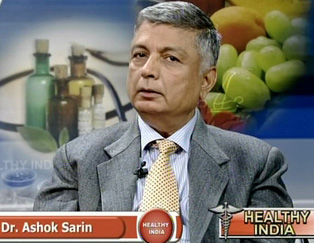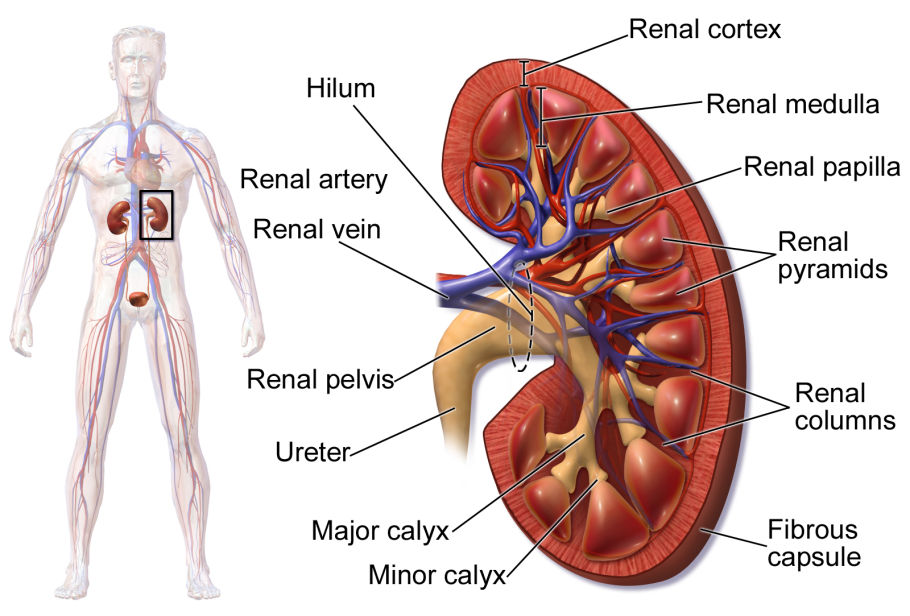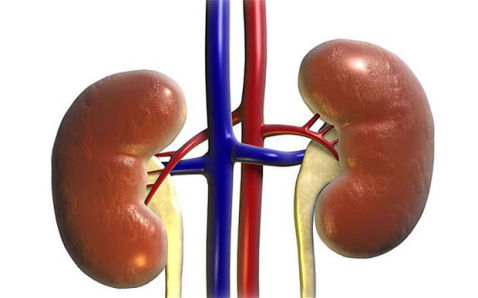PREVENTION OF KIDNEY DISEASE
Just as we have measures to prevent heart disease, kidney disease can also be prevented.
i) Keep body weight normal and not allow obesity.
ii) Balanced diet, low in salt and sugar and low in saturated fats. Use mustard oil and sunflower oil
for cooking.
iii) Regular exercise e.g. brisk walking, aerobics.
iv) No Smoking.
v) Regular medical check ups every 6 months or after one year.
I give a lot of attention to prevention of kidney diseases. However if kidney disease has developed, then in the early stages a lot can be done to prevent further progression of kidney disease.
People get very alarmed when they find that their blood urea or Serum creatinine are elevated or if the protein/albumin excretion in urine is increased.
a) If the patient is a diabetic and hypertensive, then control of diabetes and hypertension and addition of certain medication can control the disease. Certain medication should be absolutely avoided if kidney disease has set in e.g. certain pain killers, antibiotics e.g. aminoglycosides etc.
b) Acute renal failure can occur due to many reasons e.g. (i) dehydration following severe gastroenteritis especially in small children and the elderly. (ii) Blood loss due to injuries or diseases.
c) Acute Renal Failure (ARF) may be fully reversible if the primary cause resulting in the kidney failure has been adequately treated.
d) Some times Acute renal failure may need support of dialysis. There is a major misconception that once acute renal failure has set in then the patient will always need dialysis for the rest of his life. This concept is very wrong. As I have already mentioned, once the basic cause of Acute Renal failure has been adequately treated the renal failure can be fully reversed.
e) In non-diabetics, if blood urea and serum creatinine are elevated and kidney size is normal or near normal then we many plan to do a kidney biopsy. Kidney biopsy is a fairly safe procedure done under local anesthesia and ultrasound guidance. Once we have the pathology report of the kidney biopsy and we have the exact diagnosis of kidney diseases then we may be in a position to provide specific treatment to the patient and the rising trend of blood urea and serum creatinine may be reversed.
WAYS TO CHECK KIDNEY HEALTH
Blood and urine tests can tell us how well someone's kidneys are working.
our doctor may decide to do blood and urine tests if you are at risk for kidney failure or kidney disease. For people who have started dialysis to replace the functions of their kidneys, these tests let their doctors know how well dialysis is working.
Urine tests
There are two types of urine tests. One type requires a small amount of urine. It tells a doctor if there is blood, infection, protein, or cells in the urine. The other type requires collecting all the urine produced for a certain amount of time, usually 24 hours. This test will show how much urine your kidneys produce in one day. It also measures how much protein is passed from the kidneys into the urine in one day. Your doctor will be able to see if your protein levels are normal. Your doctor may also measure the amount of waste from muscle cells (called creatinine) or from the protein you eat (called urea) in your urine to see how well the kidneys are working.
Blood tests
Everyone's blood test results are different. They are affected by 3 things
1. What the person eats.
2. How well the person's kidneys are working.
3. How much urine the person passes and how much waste leaves the body through the urine.
Your doctor or nurse will give you your latest blood test results. Different labs test blood differently, but this section can help explain some of the terms you will see on your blood tests. Ask your doctor what he or she would consider to be normal results.
Some of the levels described can be affected by diet. Someone on dialysis usually has a renal dietitian and/or a nurse to talk to about what to eat.
Your blood (or the part of your blood called serum) may be tested for several things including:
Serum Creatinine
Creatinine is a waste product of muscle activity. The kidneys normally filter out this waste. Blood (serum) levels of creatinine are the most common numbers used by doctors to determine kidney function.
When the kidneys are not working, dialysis helps to remove the extra creatinine. Dialysis is usually started when creatinine clearance falls to less than 14 milliliters per minute (mL/min).
TAKING ACTIONS
For people who still have some kidney function, there are many ways to keep the kidneys working longer.
We are lucky to live today at a time when dialysis makes living without kidneys possible. But there is no substitute for the real thing.
Where to begin?
Visit your doctor regularly. If your doctor finds you are at risk for kidney disease, or are showing signs of kidney disease, he or she will take several steps to improve your health. You will have a common goal: to slow progression of the disease, and to delay dialysis. First, your doctor will want to determine the cause, and if the cause is reversible. If the cause is an underlying condition like diabetes or hypertension, your doctor will help you better control this condition. Lifestyle and diet changes may also be initiated - dietitians play a significant role in helping patients delay kidney failure. This kind of intervention, however, may be effective only if the signs of kidney disease are caught early.
Take a good look at your personal priorities in life. Personal health should be a top priority. Everyday, personal health must come first, whether it is deciding what to eat, or how late to work. This is especially true for people who have diabetes or hypertension. These are the top 2 conditions that can lead to kidney failure.
Other ways to maintain your kidney health include:
• Visiting your doctor early, and regularly
• Following your doctor's advice
• Maintaining good blood glucose control, if you are diabetic
• Following your doctor's orders to control your blood pressure, if you have high blood pressure
• Learning about symptoms of kidney disease
• Taking prescribed medications
• Taking dietary supplements or vitamins only with the approval of your doctor
• Staying positive
For people with early kidney disease, taking these steps may help delay kidney failure.
Remember: managing illness early is much better for your health...
...and much better for you than waiting until your kidneys have stopped working. When it comes to kidney disease, most patients prefer to have as little change to their lifestyle as possible, and a sense that they have some control over this situation.



